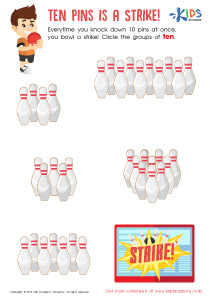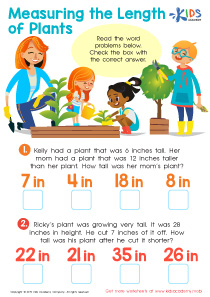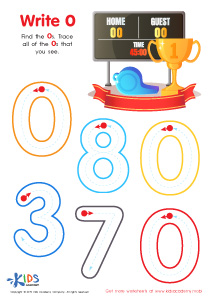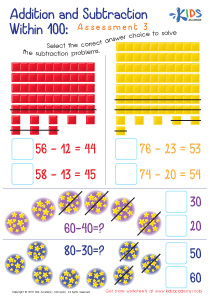Easy Numbers up to 100 Worksheets for Ages 7-8
6 filtered results
-
From - To
Introducing our "Easy Numbers up to 100 Worksheets for Ages 7-8"! Specifically designed for young learners, these engaging worksheets are perfect for mastering number recognition, counting, and basic addition and subtraction up to 100. Each printable activity is crafted to make learning fun and interactive, fostering a strong mathematical foundation in a supportive and enjoyable environment. Tailored for children aged 7-8, our worksheets help to develop critical thinking and problem-solving skills while boosting confidence in math. Ideal for classroom or home use, these resources offer a step-by-step approach ensuring every child succeeds at their own pace.
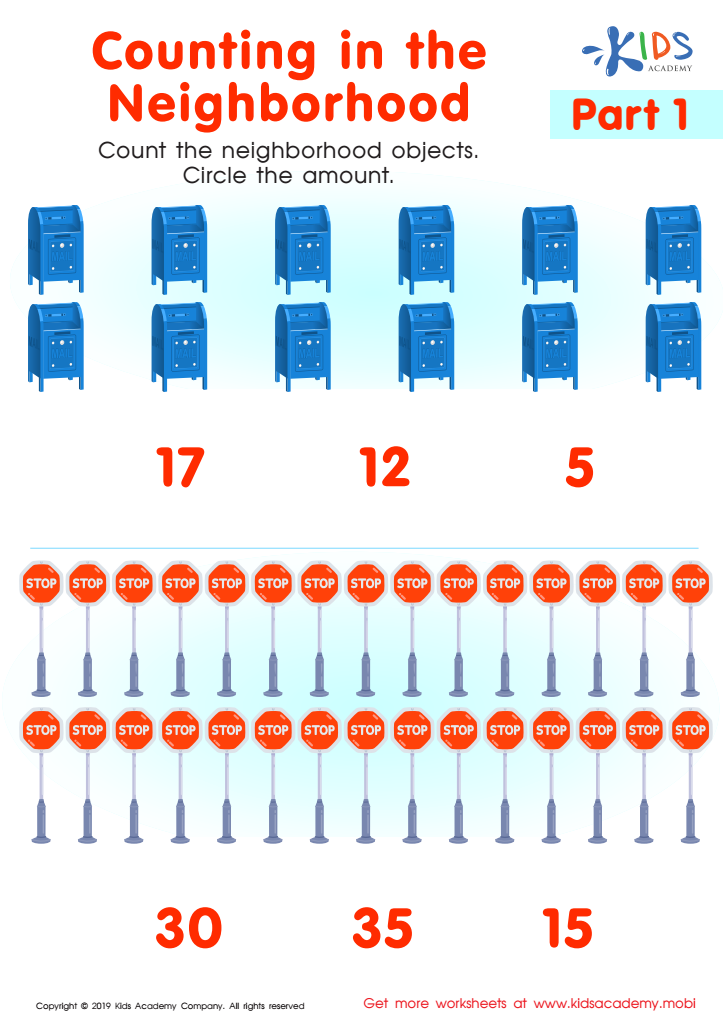

Counting in the Neighborhood Part1 Worksheet
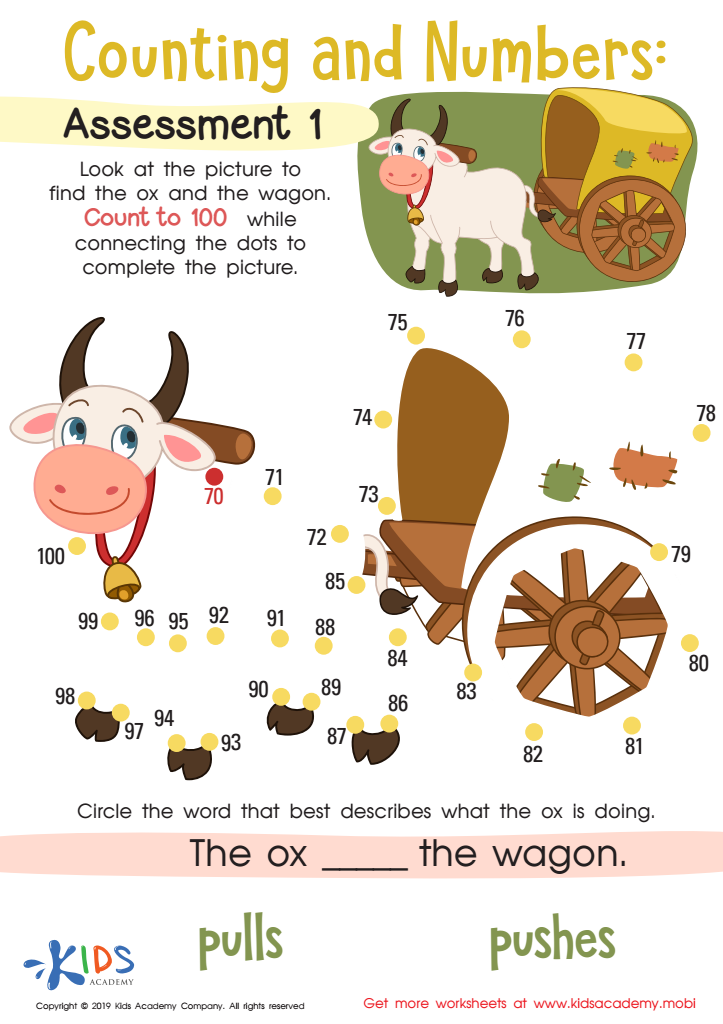

Counting and Numbers: Assessment 1 Worksheet
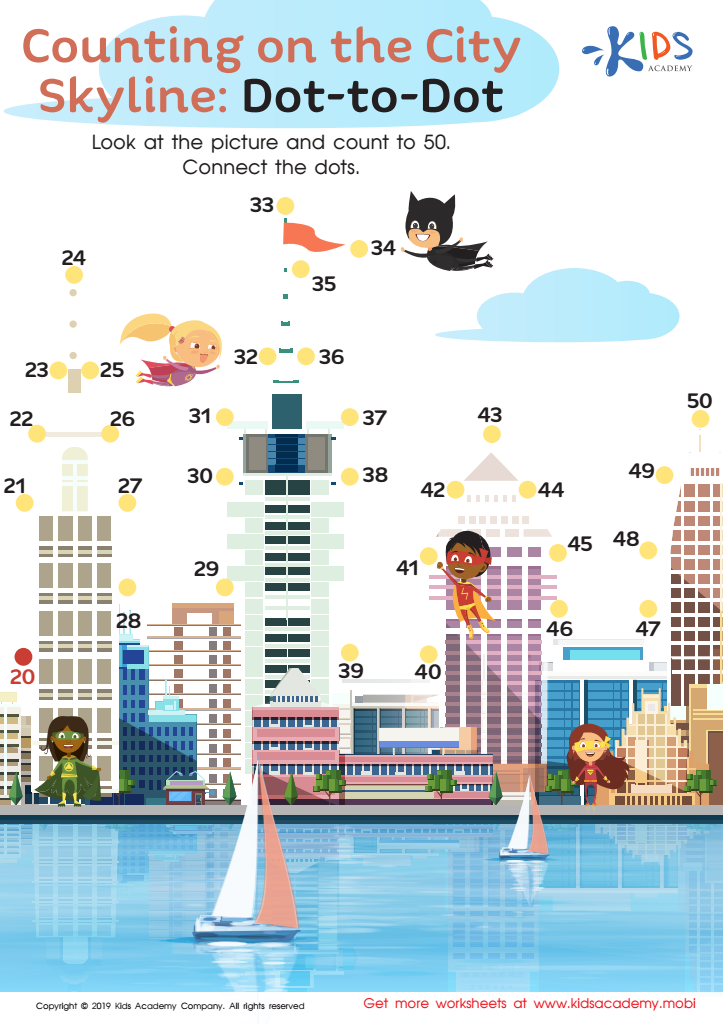

Counting on the City Skyline: Dot-to-Dot Worksheet
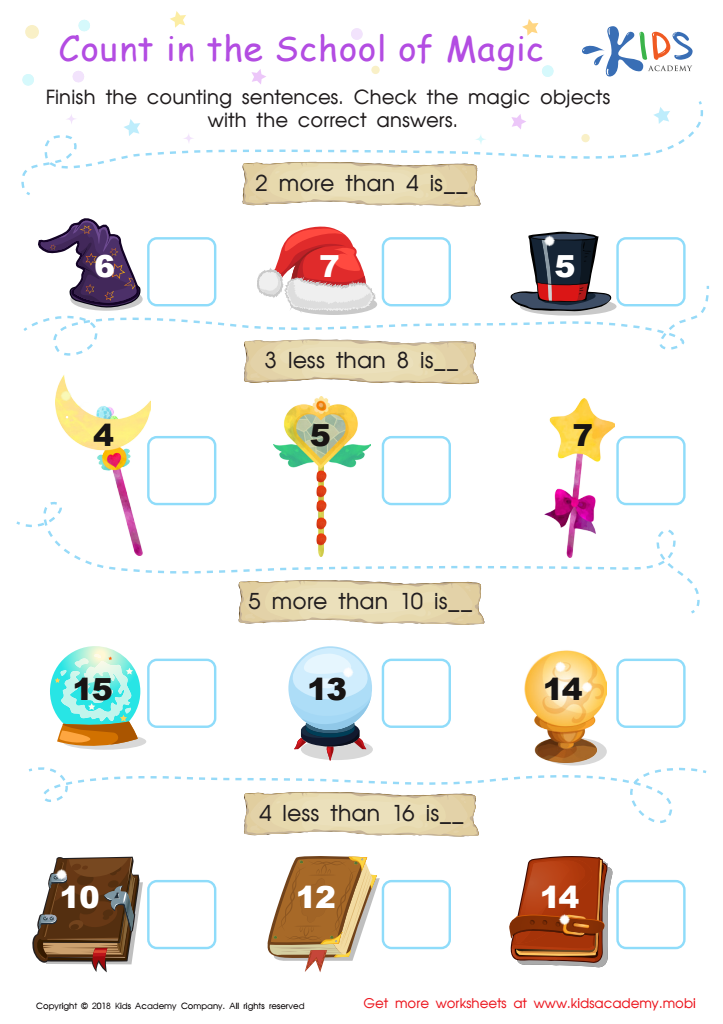

Count in the School of Magic Worksheet
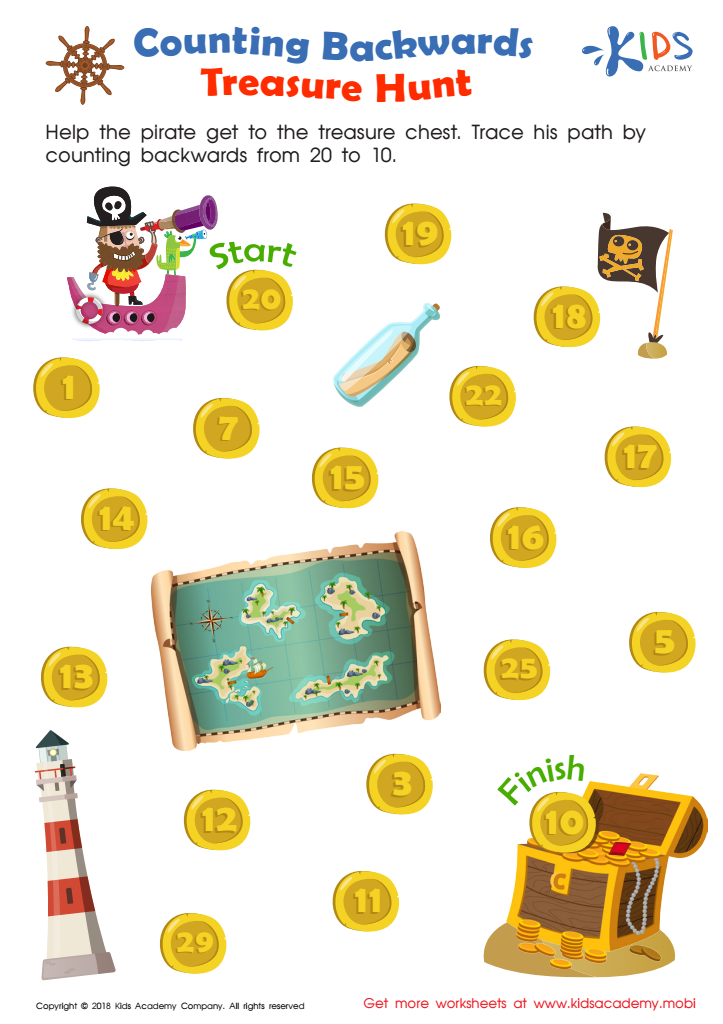

Counting Backwards: Treasure Hunt Worksheet
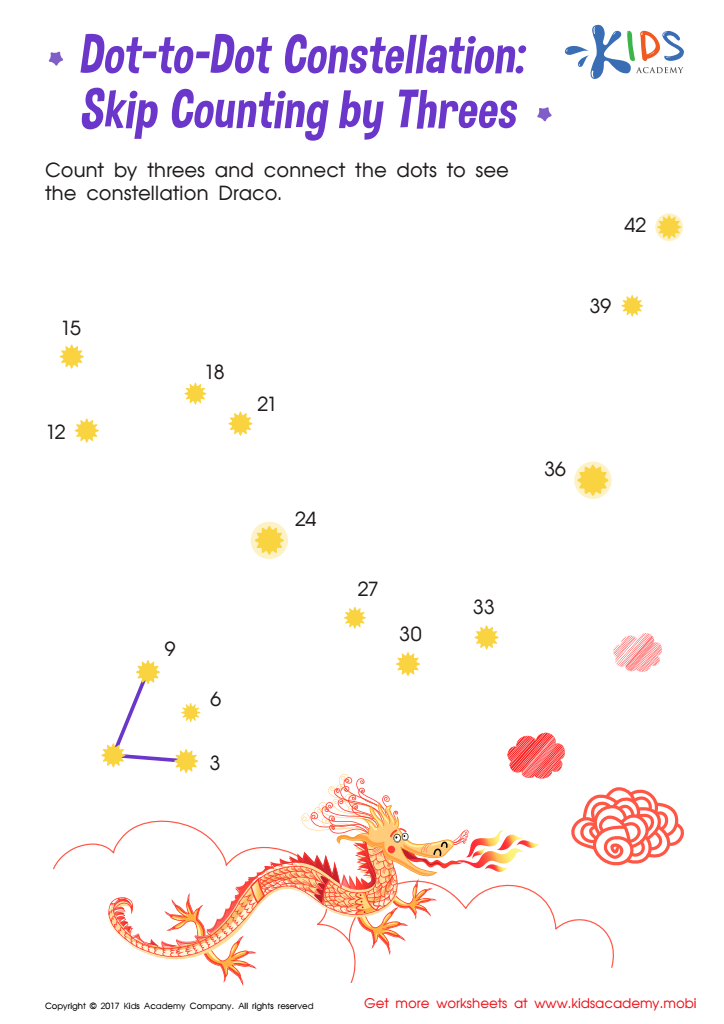

Understanding numbers up to 100 at an early age is crucial for children aged 7-8 as it lays a foundational framework for more advanced mathematical concepts. During this developmental phase, learning numbers solidifies the basics of counting, addition, subtraction, and place value, which are essential skills for everyday tasks and future education. Engaging with numbers up to 100 enhances cognitive abilities such as pattern recognition, sequencing, and logical reasoning.
Teachers and parents should focus on this to ensure that children develop a strong numerical sense, fostering confidence in their math skills. A firm grasp on numbers up to 100 aids in gradually introducing children to concepts like multiplication and division, setting the stage for understanding fractions and decimals later on.
Moreover, proficiency with numbers up to 100 is part of many school curricula, preparing children for standardized testing and further educational benchmarks. Early mathematical success often correlates with higher academic achievement in other subjects, promoting overall scholastic confidence.
Lastly, developing these skills in a supportive home or classroom environment encourages a positive attitude towards learning and problem-solving. As such, parents and teachers play a pivotal role in nurturing a child's mathematical curiosity and competence.
 Assign to My Students
Assign to My Students








%20(1).jpg)


